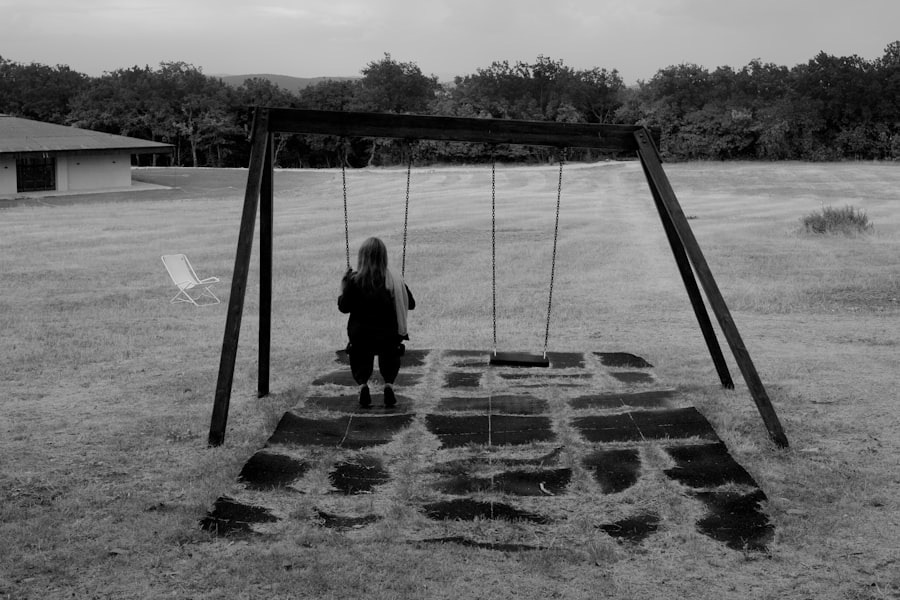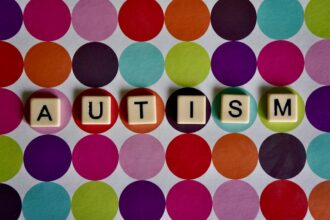Childhood neglect is a profound issue that often goes unnoticed, yet its effects can ripple through a person’s life, shaping their experiences and interactions in ways that are both subtle and overt.
It occurs when caregivers fail to provide the necessary care, attention, and support that a child needs to thrive.
This lack of nurturing can stem from various factors, including socioeconomic challenges, mental health issues, or a lack of understanding about child development. Understanding the nuances of childhood neglect is crucial for recognizing its signs and addressing its consequences. As you delve deeper into the topic, you may find that childhood neglect is not just an isolated incident but rather a pattern of behavior that can have lasting implications.
The absence of a stable and supportive environment during formative years can hinder a child’s ability to develop essential life skills. You might be surprised to learn that neglect is often more prevalent than abuse, yet it receives less attention in discussions about child welfare. By shedding light on this issue, we can begin to understand the importance of early intervention and the need for supportive systems that prioritize the well-being of children.
Key Takeaways
- Childhood neglect can have long-lasting effects on an individual’s emotional, psychological, behavioral, physical, social, and cognitive well-being.
- Emotional and psychological effects of childhood neglect can include low self-esteem, depression, anxiety, and difficulty forming and maintaining relationships.
- Behavioral consequences of childhood neglect may manifest as substance abuse, self-harm, and risky behaviors.
- Childhood neglect can lead to physical health implications such as chronic health conditions, obesity, and a weakened immune system.
- Survivors of childhood neglect may experience social and interpersonal challenges, cognitive and academic consequences, and long-term effects on relationships and attachment.
Understanding the Impact of Childhood Neglect
The impact of childhood neglect is multifaceted and can affect various aspects of a child’s development. When you consider the emotional landscape of a neglected child, it becomes evident that their sense of self-worth and security is often compromised. You may notice that children who experience neglect often struggle with feelings of inadequacy and low self-esteem.
They may internalize the belief that they are unworthy of love and attention, leading to a cycle of negative self-perception that can persist into adulthood. Moreover, the social implications of neglect are significant. You might observe that neglected children often find it challenging to form healthy relationships with peers and adults.
The lack of nurturing experiences can lead to difficulties in trusting others and establishing emotional connections. As you explore this topic further, you will see how these early experiences shape not only individual lives but also the broader community, as neglected children may grow into adults who struggle with interpersonal relationships and societal integration.
Emotional and Psychological Effects of Childhood Neglect

The emotional and psychological effects of childhood neglect are profound and can manifest in various ways throughout a person’s life. You may find that individuals who have experienced neglect often grapple with anxiety, depression, and other mental health issues. The absence of emotional support during critical developmental stages can lead to an inability to process emotions effectively.
As you reflect on this, consider how the lack of validation and encouragement from caregivers can create a void that is difficult to fill later in life. Additionally, you might notice that neglected individuals often develop maladaptive coping mechanisms as a means of dealing with their emotional pain. These coping strategies can include avoidance behaviors, substance abuse, or even self-harm.
Understanding these patterns is essential for recognizing the long-term psychological ramifications of childhood neglect. By acknowledging the emotional scars left by neglect, you can begin to appreciate the importance of therapeutic interventions aimed at healing these wounds and fostering resilience.
Behavioral Consequences of Childhood Neglect
| Behavioral Consequences of Childhood Neglect | Impact |
|---|---|
| Emotional Regulation | Difficulty managing emotions, mood swings, and impulsivity |
| Attachment Issues | Difficulty forming and maintaining healthy relationships |
| Self-Esteem | Low self-worth and self-esteem issues |
| Behavioral Problems | Aggression, defiance, and conduct disorders |
| Substance Abuse | Increased risk of substance abuse and addiction |
Behavioral consequences stemming from childhood neglect are often evident in various settings, including home, school, and social environments. You may observe that neglected children frequently exhibit disruptive behaviors or withdrawal from social interactions.
As you consider these behavioral patterns, it’s important to recognize that they are not merely acts of defiance or rebellion but rather manifestations of deep-seated emotional turmoil. You might find that these behaviors can lead to further isolation and stigmatization, creating a vicious cycle that perpetuates the effects of neglect. Understanding these behavioral consequences is crucial for developing effective interventions that address the root causes rather than merely treating the symptoms.
Physical Health Implications of Childhood Neglect
The physical health implications of childhood neglect are often overlooked but are equally significant. You may be surprised to learn that neglected children are at a higher risk for various health issues, including malnutrition, chronic illnesses, and developmental delays. The lack of proper nutrition and medical care during critical growth periods can have lasting effects on a child’s physical development.
Furthermore, as you explore this topic, consider how the stress associated with neglect can lead to long-term health problems. Chronic stress can weaken the immune system and increase susceptibility to illnesses later in life. You might also find that neglected individuals are more likely to engage in unhealthy behaviors as adults, such as smoking or poor dietary choices, further exacerbating their health challenges.
Recognizing these physical health implications underscores the importance of comprehensive support systems for neglected children.
Social and Interpersonal Challenges Resulting from Childhood Neglect

Social and interpersonal challenges resulting from childhood neglect can significantly hinder an individual’s ability to navigate relationships effectively. You may notice that those who have experienced neglect often struggle with trust issues, making it difficult for them to form meaningful connections with others. This lack of trust can stem from early experiences where caregivers failed to provide consistent support or validation.
As you reflect on these challenges, consider how they can manifest in various aspects of life, including friendships, romantic relationships, and professional interactions. You might find that individuals who have faced neglect often grapple with feelings of loneliness and isolation, leading them to withdraw from social situations altogether. Understanding these social dynamics is crucial for fostering empathy and creating supportive environments where individuals can heal and rebuild their interpersonal skills.
Cognitive and Academic Consequences of Childhood Neglect
The cognitive and academic consequences of childhood neglect are critical areas to explore as they directly impact a child’s future opportunities. You may find that neglected children often struggle with concentration, memory retention, and overall cognitive development. The lack of stimulation and encouragement during formative years can hinder their ability to engage with learning materials effectively.
As you delve deeper into this topic, consider how these cognitive challenges can translate into academic difficulties. Neglected children may experience lower academic performance, increased dropout rates, and limited access to higher education opportunities. This educational gap not only affects their personal growth but also perpetuates cycles of poverty and disadvantage within communities.
Recognizing these cognitive consequences highlights the urgent need for targeted educational interventions that address the unique needs of neglected children.
Long-Term Effects on Relationships and Attachment
The long-term effects of childhood neglect on relationships and attachment styles are profound and far-reaching. You may notice that individuals who have experienced neglect often develop insecure attachment styles characterized by anxiety or avoidance in relationships. This stems from early experiences where caregivers failed to provide consistent emotional support or nurturing.
As you reflect on these attachment styles, consider how they influence adult relationships. You might find that those with insecure attachments struggle to maintain healthy partnerships or may find themselves repeating patterns of neglect in their own parenting styles. Understanding these long-term effects is crucial for breaking the cycle of neglect and fostering healthier relationships in future generations.
Coping Mechanisms and Strategies for Those Affected by Childhood Neglect
Coping mechanisms and strategies for those affected by childhood neglect are essential for fostering resilience and healing. You may find that individuals who have experienced neglect often develop unique ways to cope with their emotional pain. These strategies can range from positive outlets like art or writing to more harmful behaviors such as substance abuse or self-isolation.
As you explore potential coping mechanisms, consider the importance of therapy and support groups in providing safe spaces for individuals to share their experiences. You might also discover the value of mindfulness practices, such as meditation or yoga, which can help individuals reconnect with their bodies and emotions in a healthy way. By promoting positive coping strategies, you can empower those affected by childhood neglect to reclaim their narratives and build healthier futures.
Seeking Help and Support for Childhood Neglect Survivors
Seeking help and support for childhood neglect survivors is a crucial step toward healing and recovery. You may find that many individuals hesitate to reach out due to feelings of shame or fear of judgment. However, recognizing the importance of professional help is vital for breaking free from the cycle of neglect.
As you consider avenues for support, think about the various resources available, including therapy options, support groups, and community organizations dedicated to helping survivors heal. You might also explore how education about childhood neglect can empower individuals to seek help proactively rather than waiting until they reach a crisis point. By fostering an environment where seeking help is normalized, we can encourage survivors to take the first steps toward healing.
Breaking the Cycle of Childhood Neglect
Breaking the cycle of childhood neglect requires collective awareness and action from society as a whole. You may realize that addressing this issue involves not only recognizing its signs but also advocating for systemic changes that prioritize children’s well-being. By fostering supportive environments where children feel valued and nurtured, we can create a foundation for healthier future generations.
As you reflect on this journey through understanding childhood neglect, consider your role in promoting awareness and compassion within your community. Whether through education, advocacy, or simply being a supportive presence in someone’s life, your efforts can contribute to breaking the cycle of neglect. Together, we can work toward a future where every child has access to the love and support they need to thrive.
Childhood neglect can have profound and lasting impacts on an individual’s mental and emotional well-being. Research has shown that children who experience neglect may face challenges such as difficulties in forming healthy relationships, increased risk of mental health disorders, and impaired cognitive development. An insightful article that delves into the long-term effects of childhood neglect can be found on Unplugged Psych. This article provides a comprehensive overview of the psychological and developmental consequences that neglected children may encounter as they grow into adulthood. For more detailed information, you can read the full article by visiting Unplugged Psych.
🧠 Your Trauma Is Rewiring Your Brain: Here’s How to Undo It | A Neuroplasticity & Somatic Guide
FAQs
What are the long-term effects of childhood neglect?
Childhood neglect can have long-term effects on a person’s physical, emotional, and mental well-being. These effects can include difficulties in forming and maintaining relationships, low self-esteem, mental health issues such as depression and anxiety, and physical health problems.
How does childhood neglect affect a person’s relationships?
Children who experience neglect may struggle to form healthy and secure attachments in their adult relationships. They may have difficulty trusting others, setting boundaries, and expressing their emotions, which can impact their ability to maintain healthy relationships.
What are the mental health effects of childhood neglect?
Childhood neglect can contribute to the development of mental health issues such as depression, anxiety, and post-traumatic stress disorder (PTSD). These conditions can persist into adulthood and may require professional intervention and treatment.
How does childhood neglect impact physical health?
Neglect in childhood can lead to physical health problems in adulthood, such as chronic pain, obesity, and a weakened immune system. Neglected children may also be at a higher risk for engaging in risky behaviors that can negatively impact their physical health.
Can the long-term effects of childhood neglect be reversed?
With appropriate support and intervention, individuals who have experienced childhood neglect can work towards healing and overcoming the long-term effects. Therapy, support groups, and building healthy relationships can all contribute to the healing process.




